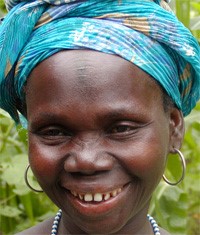Kubi in Nigeria

Photo Source:
Copyrighted © 2026
GoWestAfrica All rights reserved. Used with permission |
Send Joshua Project a map of this people group.
|
| People Name: | Kubi |
| Country: | Nigeria |
| 10/40 Window: | Yes |
| Population: | 3,300 |
| World Population: | 3,300 |
| Primary Language: | Hausa |
| Primary Religion: | Islam |
| Christian Adherents: | 4.00 % |
| Evangelicals: | 0.20 % |
| Scripture: | Complete Bible |
| Ministry Resources: | Yes |
| Jesus Film: | Yes |
| Audio Recordings: | Yes |
| People Cluster: | Chadic |
| Affinity Bloc: | Sub-Saharan Peoples |
| Progress Level: |
|
Introduction / History
The Kubi people, residing in Nigeria, are a small ethnic group with a history that dates back several centuries. The origins of the Kubi are linked to migrations and intermixing with neighboring groups in the region. Their history has been shaped by various socio-political changes, including the influence of colonialism and the introduction of Islam to the region. Traditionally, the Kubi have been subsistence farmers, relying on the fertile land of their region to sustain their communities.
What Are Their Lives Like?
Agriculture is the primary occupation among the Kubi people, with millet, sorghum and maize being the staple crops. The Kubi live in small, close-knit communities where family and clan relationships are of great importance. Houses are typically made of mud with thatched roofs, reflecting traditional architectural styles. Social life revolves around communal activities, with festivals and rituals playing a significant role in maintaining social cohesion. Access to education and healthcare remains limited, particularly in rural areas.
What Are Their Beliefs?
The majority of the Kubi people adhere to Islam, which was introduced to the region several centuries ago. Islamic practices and beliefs are deeply ingrained in daily life, with religious leaders holding a respected position in the community. Traditional beliefs and practices, however, still persist and are often interwoven with Islamic customs. They blend ancestral beliefs in the spirit world with Sunni Islamic practices.
What Are Their Needs?
The Kubi people face several challenges that impact their quality of life. Access to clean water, healthcare and education remains limited, especially in more remote areas. They need economic opportunities beyond agriculture to provide sustainable livelihoods for the growing population. Infrastructure development, including improved roads and communication networks, is essential for the integration of Kubi communities into broader economic and social systems. Additionally, there is a need for initiatives that address food security and the effects of climate change on agricultural practices.
Prayer Points
Ask God to open their eyes, hearts and ears to the good news of the living savior.
Pray for the Lord to raise up the right people to disciple the Kubi in his ways.
Pray for the Lord to demonstrate his power and goodness among them in a way they will understand.
Ask for an intervention of the Holy Spirit in each Kubi family.